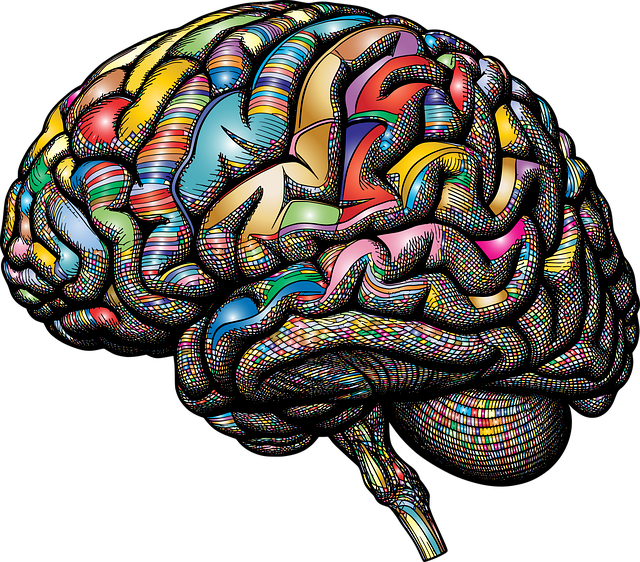Therapy for Exposure and Response Prevention (TERP), a cognitive behavioral therapy approach, equips individuals with powerful emotion regulation techniques. By facing fears and cultivating mindfulness, TERP reduces anxiety and promotes resilience. Community outreach programs, combined with conflict resolution strategies and self-awareness exercises, can significantly improve mental well-being on a widespread scale. These skills are vital for managing stress, depression, and anxiety, enhancing quality of life, and fostering emotional intelligence in various settings, including educational environments.
Emotion regulation techniques are powerful tools that empower individuals to navigate life’s challenges with resilience. This comprehensive guide explores various strategies, focusing on the transformative potential of Therapy for Exposure and Response Prevention (ERP). Delve into understanding ERP as a foundational approach, discover practical daily and classroom-ready strategies, and uncover the profound benefits—all while navigating associated challenges and exploring future directions in teaching emotion regulation skills.
- Understanding Emotion Regulation Techniques: A Foundation for Teaching
- Therapy for Exposure and Response Prevention: Unlocking the Power of Mindfulness
- Practical Strategies: Tools for Daily Life and Classroom Implementation
- Benefits, Challenges, and Future Directions in Teaching Emotion Regulation Skills
Understanding Emotion Regulation Techniques: A Foundation for Teaching

Understanding emotion regulation techniques is a fundamental aspect of teaching effective coping strategies. These techniques empower individuals to manage and navigate their emotions healthily, which can be especially beneficial for those struggling with mental health issues like depression. One evidence-based approach gaining prominence in therapeutic circles is Therapy for Exposure and Response Prevention (ERP). ERP helps individuals confront anxiety-provoking situations, gradually reducing the emotional response and associated avoidance behaviours.
By teaching these skills, educators and therapists lay a robust foundation for students to build resilience and adaptively manage their emotions. Additionally, community outreach program implementations can facilitate access to emotion regulation resources for diverse populations, fostering better mental well-being on a broader scale. This proactive approach, coupled with techniques like conflict resolution strategies, empowers individuals to not only regulate their own emotions but also navigate interpersonal challenges effectively.
Therapy for Exposure and Response Prevention: Unlocking the Power of Mindfulness

Therapy for Exposure and Response Prevention (TERP) is a groundbreaking approach that harnesses the power of mindfulness to help individuals manage their emotions effectively. This technique, often used in cognitive behavioral therapy, encourages people to confront fears or triggers while simultaneously focusing on the present moment, thereby reducing anxiety and stress responses. By practicing mindfulness, individuals learn to observe their thoughts and feelings without judgment, fostering a deeper understanding of their emotional patterns.
In today’s fast-paced world, where public awareness campaigns and communication strategies play a pivotal role in promoting mental health, TERP offers a practical tool for stress management. Workshops and organizations dedicated to teaching these techniques can empower individuals to take control of their emotional well-being. This proactive approach not only enhances resilience but also enables people to navigate challenging situations with greater composure and clarity.
Practical Strategies: Tools for Daily Life and Classroom Implementation

Incorporating emotion regulation techniques into daily life and classroom settings is a powerful approach to fostering resilience and well-being. Practical strategies such as mindfulness practices, deep breathing exercises, and cognitive reframing can equip individuals with effective tools to manage their emotions. For instance, teaching students to recognize triggers and implement Therapy for Exposure and Response Prevention (ERP) techniques can significantly enhance their ability to cope with challenging situations.
Additionally, integrating Coping Skills Development activities in educational environments promotes a sense of agency among learners. Conflict Resolution Techniques and Self-Awareness Exercises further complement these strategies by encouraging proactive problem-solving and emotional intelligence. These practices not only support individual growth but also create a more positive and supportive classroom atmosphere where students can learn to navigate their emotions effectively.
Benefits, Challenges, and Future Directions in Teaching Emotion Regulation Skills

Teaching emotion regulation skills offers a multitude of benefits for individuals across various walks of life. By equipping people with effective coping mechanisms, these techniques empower them to navigate stressful situations with greater resilience and emotional intelligence. Research has shown that enhancing emotional awareness and understanding can lead to improved mental wellness, reduced symptoms of anxiety and depression, and better overall quality of life. Furthermore, these skills are transferable to different aspects of daily living, from personal relationships to professional settings, fostering healthier interactions and conflict resolution techniques.
Despite the promising outcomes, several challenges remain in integrating emotion regulation training into educational or therapeutic contexts. One significant hurdle is adapting teaching methods to cater to diverse learning styles and individual needs. Additionally, maintaining engagement and motivation throughout the process can be daunting, especially for those who struggle with internalizing new strategies. Nevertheless, ongoing advancements in mental wellness podcast series production highlight promising future directions. Interactive platforms and innovative tools, such as technology-augmented therapy for exposure and response prevention (ERP), hold immense potential to enhance learning outcomes and make emotion regulation skills more accessible to a broader audience.
Emotion regulation techniques teaching offers a powerful tool for enhancing mental well-being, with evidence from therapy for exposure and response prevention highlighting its significant benefits. By integrating practical strategies into daily life and classroom settings, educators can empower individuals to navigate their emotions effectively. As we look to the future, further research and professional development initiatives are essential to address challenges and explore innovative ways of teaching these skills, ensuring that emotion regulation becomes an accessible and transformative resource for all.











